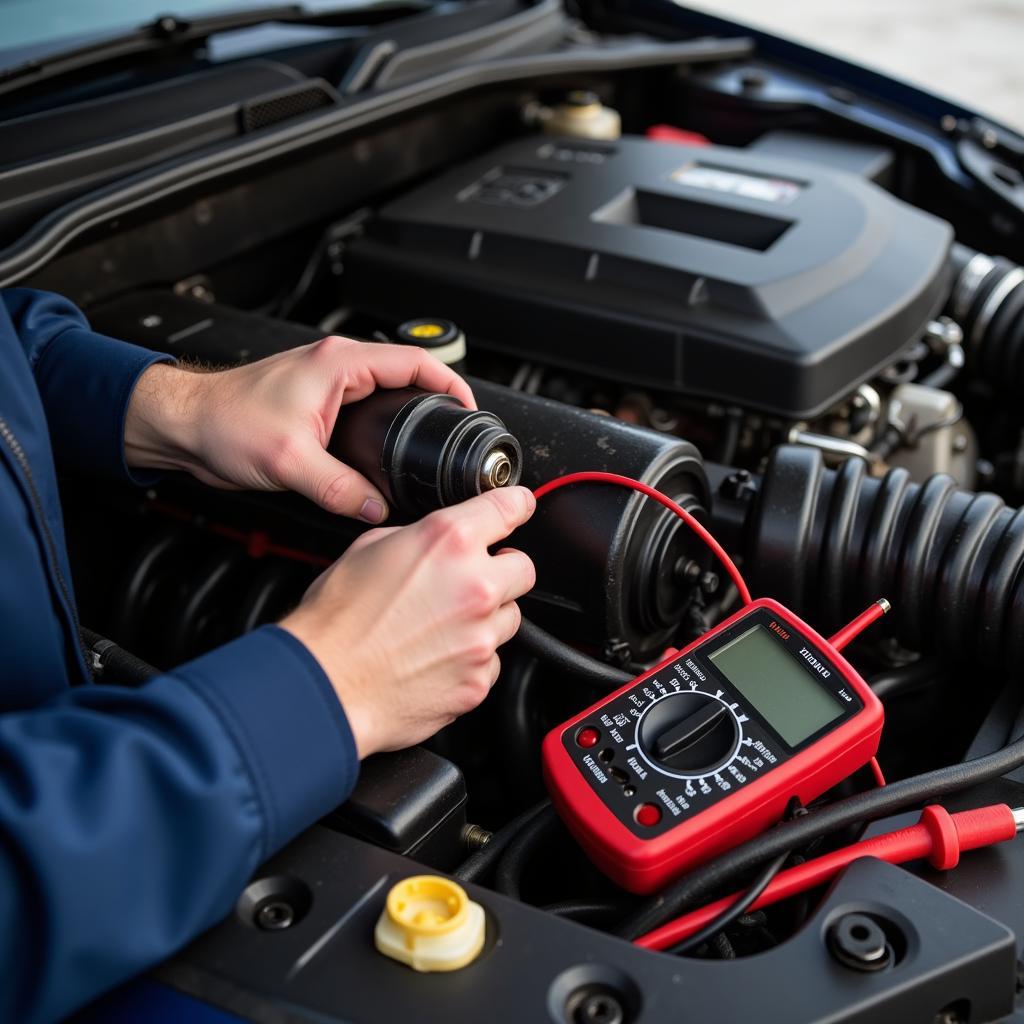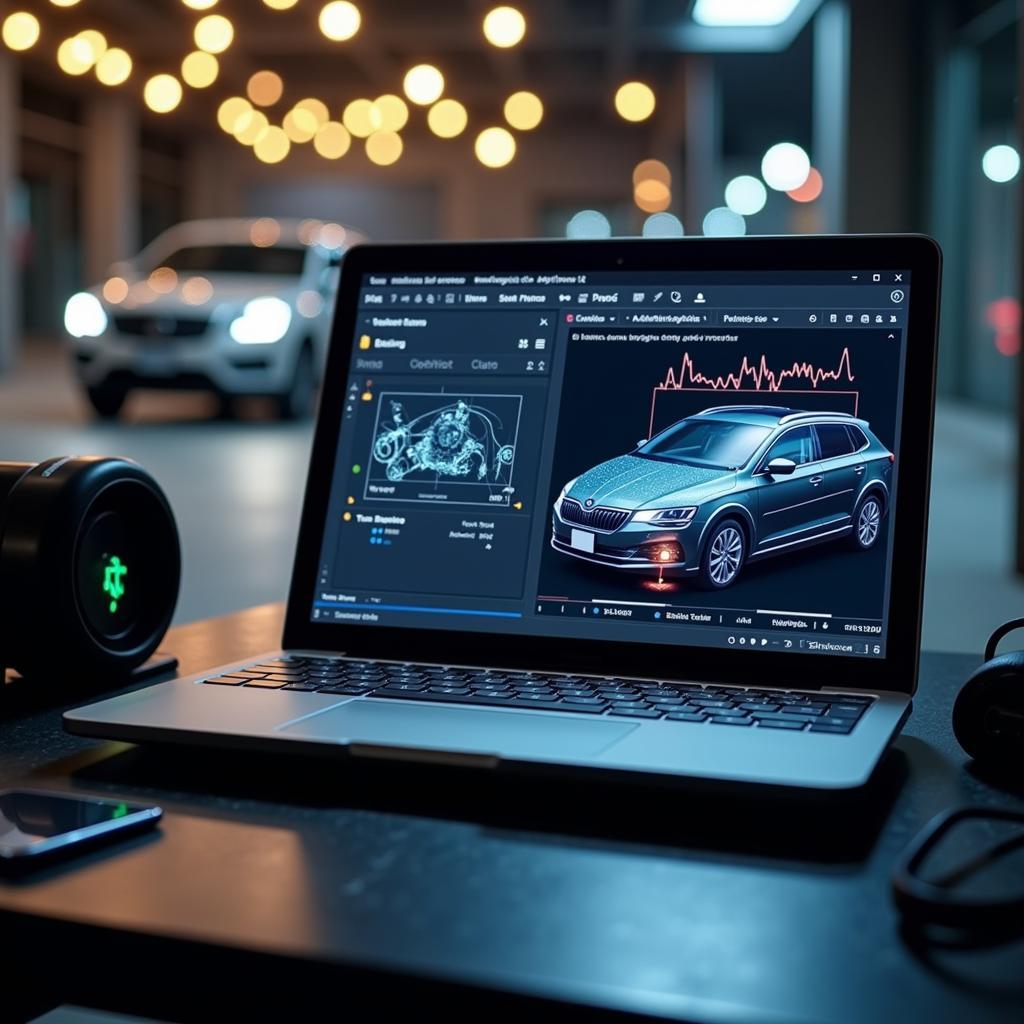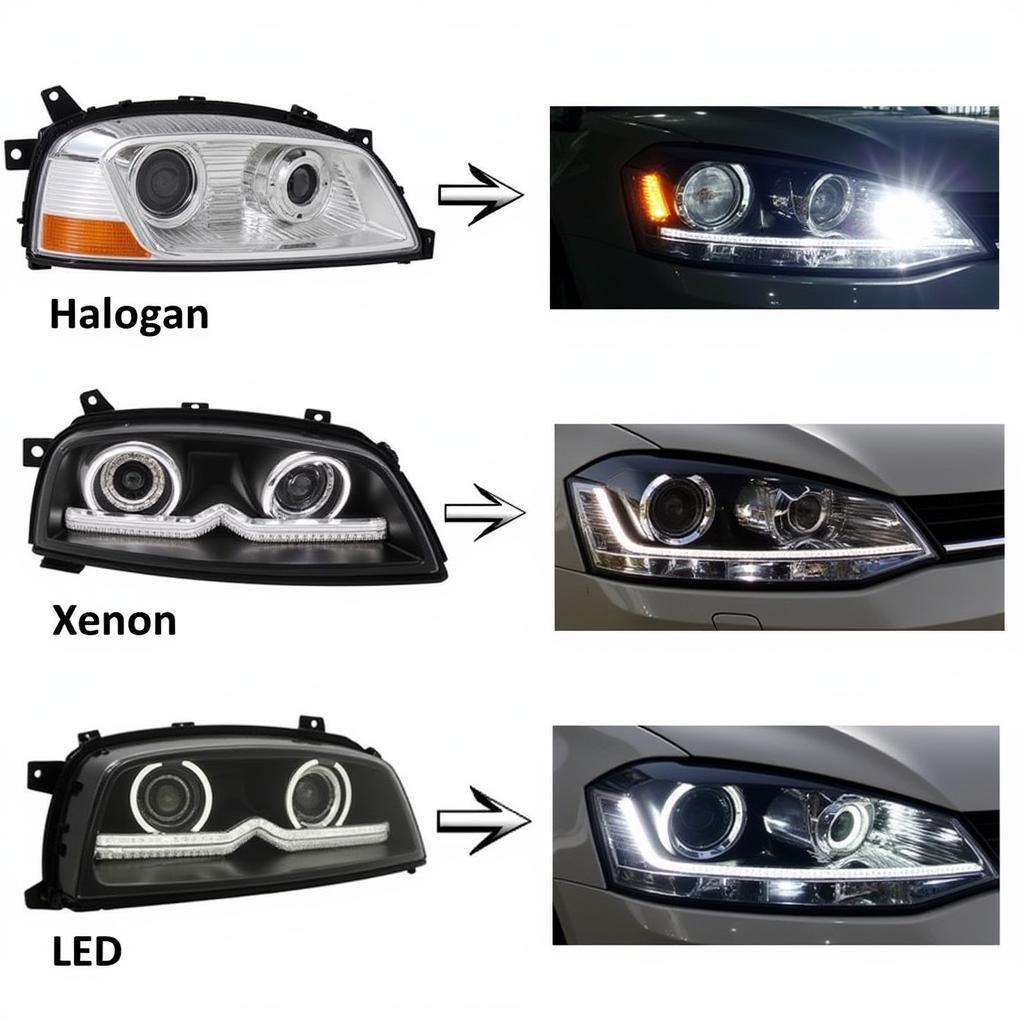A car that won’t start, even with a good battery, can be incredibly frustrating. This article will guide you through the most common culprits behind this problem and offer solutions so you can get back on the road. We’ll explore everything from faulty starters and alternators to fuel system issues and more. Let’s dive in and get your car started.
If you’ve recently experienced battery issues, even if not the current problem, articles like new car battery dies overnight and brand new battery keeps dying might provide some insightful information for future prevention.
Common Causes of a Car Not Starting (Beyond the Battery)
There are several reasons why your car might not start even if the battery isn’t the issue. Understanding these can save you time and money.
The Starter Motor: The Heart of the Starting System
The starter motor is responsible for cranking the engine to life. If it’s malfunctioning, your car won’t start. Common signs of a faulty starter include a clicking sound when you turn the key, a grinding noise, or the engine turning over very slowly.
Fuel System Problems: No Fuel, No Go
A lack of fuel or a problem with the fuel system can prevent your car from starting. This could be a clogged fuel filter, a faulty fuel pump, or even a bad fuel injector. If you suspect a fuel problem, check your fuel gauge. If it’s low, fill up the tank. If that doesn’t solve the issue, a deeper inspection is needed.
 Inspecting the car starter motor
Inspecting the car starter motor
Ignition System Malfunctions: The Spark of Life
The ignition system creates the spark that ignites the air/fuel mixture in the cylinders. A faulty ignition coil, spark plugs, or distributor cap can prevent this spark, leading to a no-start condition.
Sensor Issues: The Brains of the Operation
Modern cars rely on various sensors to monitor and control engine functions. A malfunctioning crankshaft position sensor or camshaft position sensor can prevent the engine from starting. These sensors tell the engine’s computer the position of the crankshaft and camshaft, which is crucial for timing the ignition and fuel injection.
Security System Glitches: Locking You Out
Sometimes, the car’s anti-theft system can prevent the engine from starting if it malfunctions. This can manifest in various ways, such as the engine cranking but not starting or the key not being recognized. Try using your spare key to see if this resolves the problem.
For issues related to slow cranking, check out this article: car turns over slowly but wont start.
Diagnosing the Problem: A Step-by-Step Guide
- Check the Obvious: Ensure the car is in park or neutral and the parking brake is engaged.
- Listen Carefully: When you turn the key, pay attention to any sounds. Clicking, grinding, or whirring noises can indicate the source of the problem.
- Check for Fuel: Make sure you have enough gas. If you recently filled up, ensure the fuel cap is tightly sealed.
- Inspect the Ignition System: Look for damaged or worn spark plug wires.
- Consider the Sensors: If you suspect a sensor issue, using a diagnostic tool can help pinpoint the problem.
Remote Diagnostics and Programming: A Modern Solution
Modern technology allows for remote diagnostics and programming, which can often identify and even fix car problems without a physical visit to a mechanic. This can be particularly helpful in identifying sensor or software-related issues that might be causing your car not to start.
 Using remote diagnostics software to troubleshoot car issues
Using remote diagnostics software to troubleshoot car issues
Expert Insights
John Smith, a seasoned automotive electrical engineer, advises, “Remote diagnostics is a powerful tool, especially when dealing with complex electronic systems. It allows us to access the car’s computer remotely and pinpoint the root cause of the problem efficiently.”
Another expert, Sarah Johnson, a specialist in remote automotive software solutions, adds, “With advancements in remote programming, we can even reprogram certain modules and fix software glitches without needing physical access to the vehicle. This saves both time and money for the car owner.”
Conclusion
A car not starting can be a complex issue with various potential causes beyond a dead battery. By understanding the common culprits and following a logical diagnostic approach, you can often identify the problem and take appropriate action. Remote diagnostics and programming are valuable tools in this process, offering efficient and effective solutions. Remember, if you’re not comfortable working on your car yourself, seeking professional help is always recommended. A properly functioning car ensures a safe and enjoyable driving experience. If you’ve had previous battery problems, you can read about 12-volt battery problems in this helpful article: 12 volt battery problems. Similarly, understanding potential battery problems in specific car models, like those outlined in 2014 buick lacrosse battery problems, can offer valuable insights.
FAQ
- What should I do if my car won’t start and it’s not the battery? Start by checking the starter, fuel system, and ignition system.
- Can a bad sensor prevent my car from starting? Yes, faulty sensors like the crankshaft or camshaft position sensor can prevent the engine from starting.
- What is remote diagnostics? It’s a method of diagnosing car problems using software and a connection to the car’s computer, often wirelessly.
- Can remote programming fix car problems? Yes, certain software glitches and module issues can be resolved through remote programming.
- What are the common signs of a faulty starter motor? Clicking sounds, grinding noises, or the engine turning over slowly can indicate a starter problem.
- How can I tell if it’s a fuel system issue? Check your fuel gauge. If it’s low, fill up. If the problem persists, further inspection is needed.
- What if I’m not comfortable working on my car myself? It’s always best to seek professional help if you’re unsure about anything.

